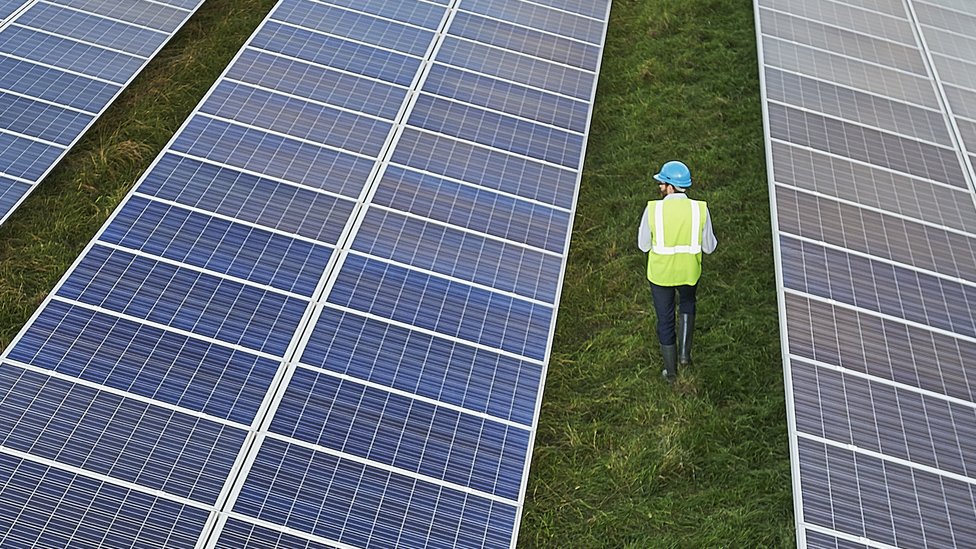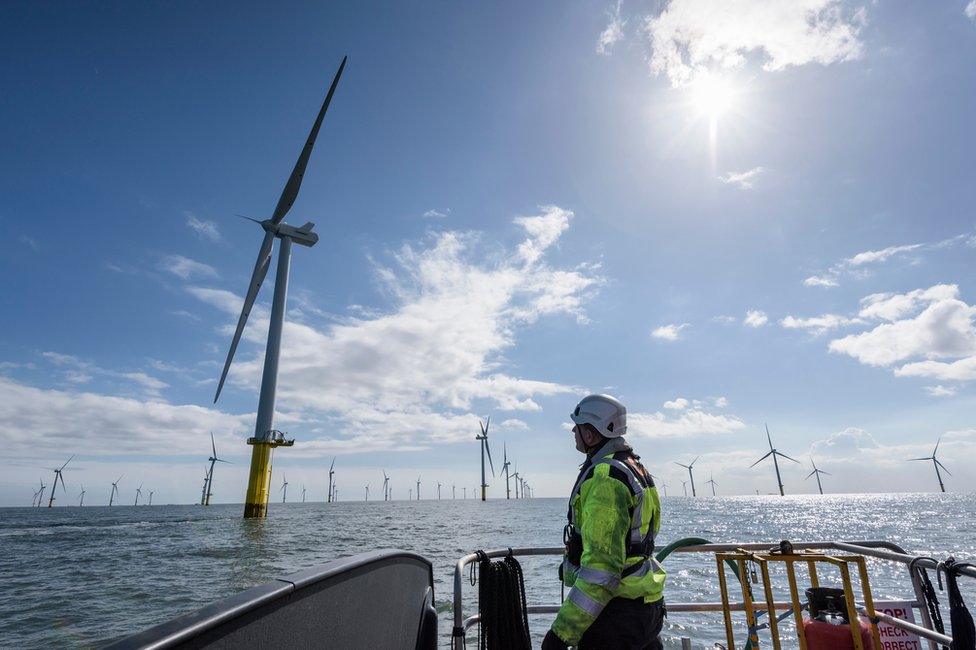
Revolutions are often born out of crises and the government's long awaited plan to start a green industrial revolution is a central part of its ambition to "build back better" after the economic shock of the coronavirus crisis.
But does this plan deliver?
The eye-catching and headline-grabbing abolition of new petrol and diesel cars a decade earlier than originally planned has been welcomed by environmental groups.
It puts the UK toward the front of the pack in the electric vehicle race and was also widely expected in a year when the UK needed to demonstrate the kind of leadership required of the next hosts of the world's biggest environment summit COP 26.
Investment in capturing carbon at the point its burnt and burying it deep underground has also been seen as an essential part of the roadmap to net zero.

There was also money for new nuclear - big and small - and a drive to make new homes more efficient by retro-fitting old ones with better insulation, or replacing old gas boilers with new electric pumps which convert and concentrate heat underground into central heating for our homes.
A pilot to replace 600,000 home heating systems a year by 2028 sounds like a lot - but it's hard to exaggerate the scale and cost of the task involved in replacing 25 million gas boilers.
If that happens, this will be a revolution that won't be about international summits, climate protests, or huge and distant infrastructure projects. It's a revolution that is coming to our front doors and inside our cupboards.
A mini revolution?
Heating is the single biggest contributor to carbon emissions, and the Committee on Climate change says this will be the hardest nut to crack and on its own could cost up to £500bn.
That's the problem for many. Today's commitment of £4bn pounds in new money seems like a very small sum to be considered evidence that a "revolution" is underway.
In its defence, the government will rightly point out that a little bit of government money and political will can generate a lot of private investment. It will also point to the fact that the Covid crisis has limited its ability to commit right now to future spending.
Critics cry that if there is a bigger crisis than coronavirus, it's climate change and there are no vaccines for this one on the horizon.
But in one way there is a mini-revolution here.
In the past, and in the parsimonious eyes of treasury officials, green stuff = cost. There is now a new orthodoxy that green stuff = jobs.
The government is VERY keen for these measures to be seen as not only steps towards hitting a climate target but a way of creating jobs in a post-Covid world.
The bigger the project, the more jobs it creates, the more favourably the government will look at it.
That's a new shade of green for a Conservative government.
"really" - Google News
November 18, 2020 at 05:34AM
https://ift.tt/36R0tgC
Is this really a green revolution? - BBC News
"really" - Google News
https://ift.tt/3b3YJ3H
https://ift.tt/35qAk7d
Bagikan Berita Ini














0 Response to "Is this really a green revolution? - BBC News"
Post a Comment